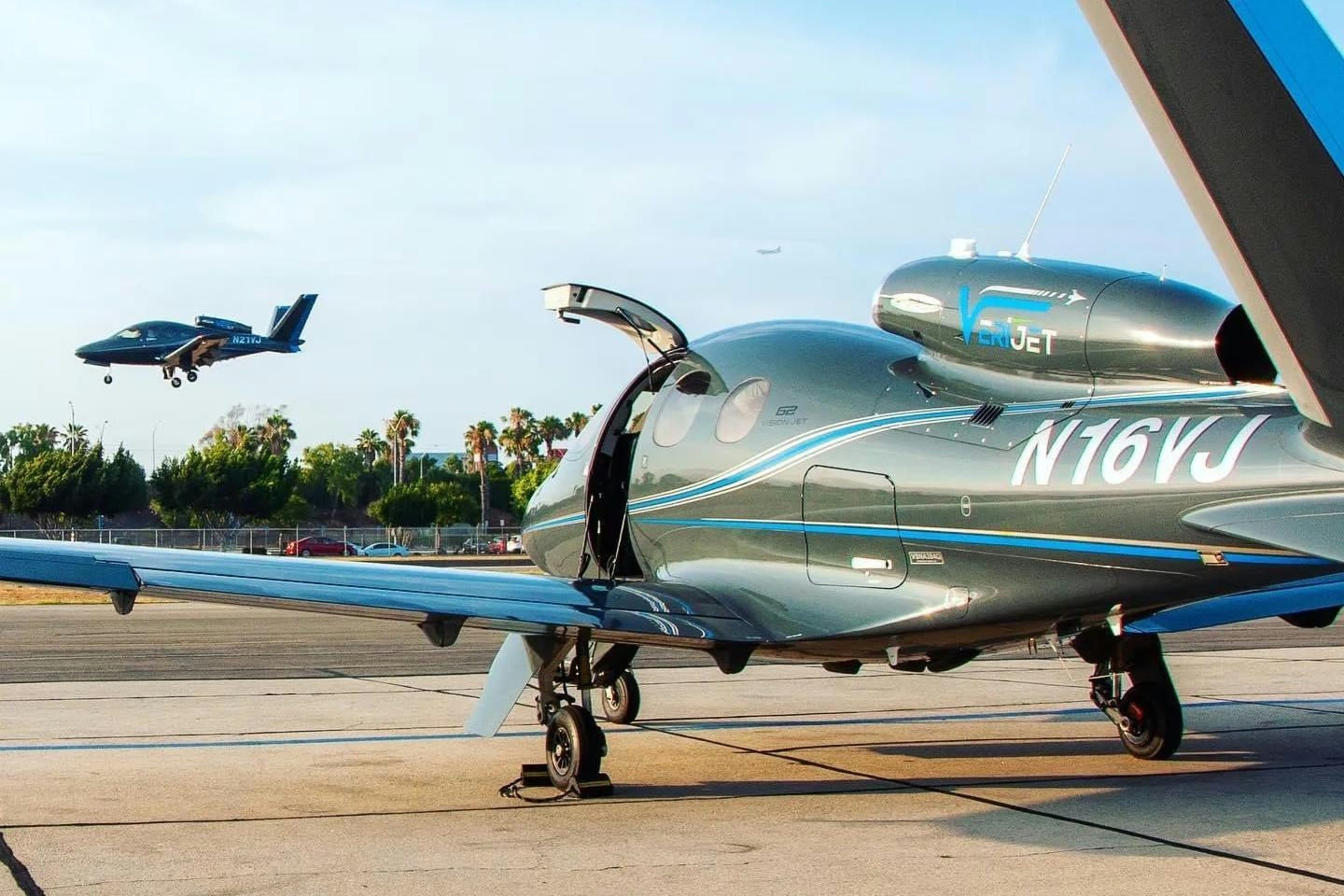AeroGenie — Your Intelligent Copilot.
Trending
Categories
Verijet Files for Bankruptcy, Halting Green Air Taxi Project

Verijet Files for Bankruptcy, Halting Green Air Taxi Project
Florida-based charter operator Verijet has filed for Chapter 7 bankruptcy, effectively ending one of the most ambitious initiatives aimed at revolutionizing short-haul private air travel with a focus on sustainability. Court documents reveal that at the time of its October 9, 2025 filing, Verijet reported assets valued between $1 million and $10 million, while its liabilities reached as high as $50 million. This bankruptcy follows a series of legal disputes involving customers and vendors and comes just weeks after the sudden death of founder and CEO Richard Kane, who passed away from a heart attack on September 13 at the age of 60.
The Vision and Business Model
Established in 2020, Verijet sought to create a “green air taxi” network utilizing the Cirrus SF50 Vision Jet, a single-engine aircraft more commonly owned by private individuals than charter operators. Kane’s vision was to connect smaller cities and regional airports by leveraging the Vision Jet’s lower fuel consumption and reduced noise levels, offering a cleaner and quieter alternative to conventional light-jet services. The company highlighted that the Vision Jet’s fuel burn of approximately 60 gallons per hour was significantly lower than the more than 100 gallons per hour typical of most twin-engine jets, resulting in an estimated 40% reduction in carbon emissions. Verijet also committed to using sustainable aviation fuel (SAF) whenever possible and offsetting remaining emissions to achieve net-zero carbon operations.
Verijet operated on a jet card model, selling prepaid flight hours in blocks starting at $25,000, with average rates around $3,000 per flight hour. The company positioned its pricing as competitive with turboprop charters, emphasizing faster point-to-point travel. However, unlike traditional fractional ownership or guaranteed-availability programs, Verijet’s terms stipulated that flights were “subject to aircraft and crew availability.” This provision became a source of contention as customers encountered difficulties booking flights or recovering unused balances amid operational disruptions.
Expansion and Decline
At its height, Verijet expanded beyond its South Florida base to serve markets in Texas, California, South Carolina, the Northeast, and the Caribbean, briefly ranking as the 13th-largest charter operator in the United States by flight hours. In 2023, the company appeared poised for further growth after signing a letter of intent to merge with a special purpose acquisition company (SPAC) led by former Boeing CEO Dennis Muilenburg. The merger would have taken Verijet public, but the deal collapsed when Muilenburg’s New Vista Capital liquidated the SPAC before the transaction could close.
As financial pressures intensified, lawsuits from jet card holders alleging large unused balances after canceled flights were joined by claims from vendors, lessors, and fuel suppliers. By mid-2025, Verijet’s fleet had shrunk from approximately 20 Cirrus Vision Jets to just a few aircraft, with flight operations nearly ceasing following Kane’s death.
Impact on the Air Taxi Market
Verijet’s collapse is expected to disrupt the emerging air taxi sector and may trigger heightened regulatory scrutiny of air taxi operations and clearances. Competitors are already responding to the void left by Verijet’s exit. Companies such as Archer Aviation, which holds a $6 billion order book and aims to capture a share of a multi-trillion-dollar global market, are accelerating innovation and expanding their presence. Meanwhile, Delta Air Lines is advancing its partnership to develop an all-electric taxiing system designed to further reduce fuel consumption and operational costs.
Although Verijet’s website remains active, the company’s ambitious vision for sustainable regional air travel has come to an abrupt halt, leaving a significant gap in a rapidly evolving industry.

Electric Aircraft Market Outlook Through 2035

Capital A Completes Sale of Aviation Business to AirAsia X

Four Gateway Towns to Lake Clark National Park

PRM Assist Secures €500,000 in Funding

Should Travelers Pay More for Human Support When Plans Go Wrong?

InterGlobe Aviation Shares Rise 4.3% Following January Portfolio Rebalancing

Key Market Segments Shaping Airline Route Profitability Software

Locatory.com Gains Traction Among Aviation MROs and Suppliers

JetBlue Flight Makes Emergency Landing Following Engine Failure

58 Pilots Graduate from Ethiopian University
